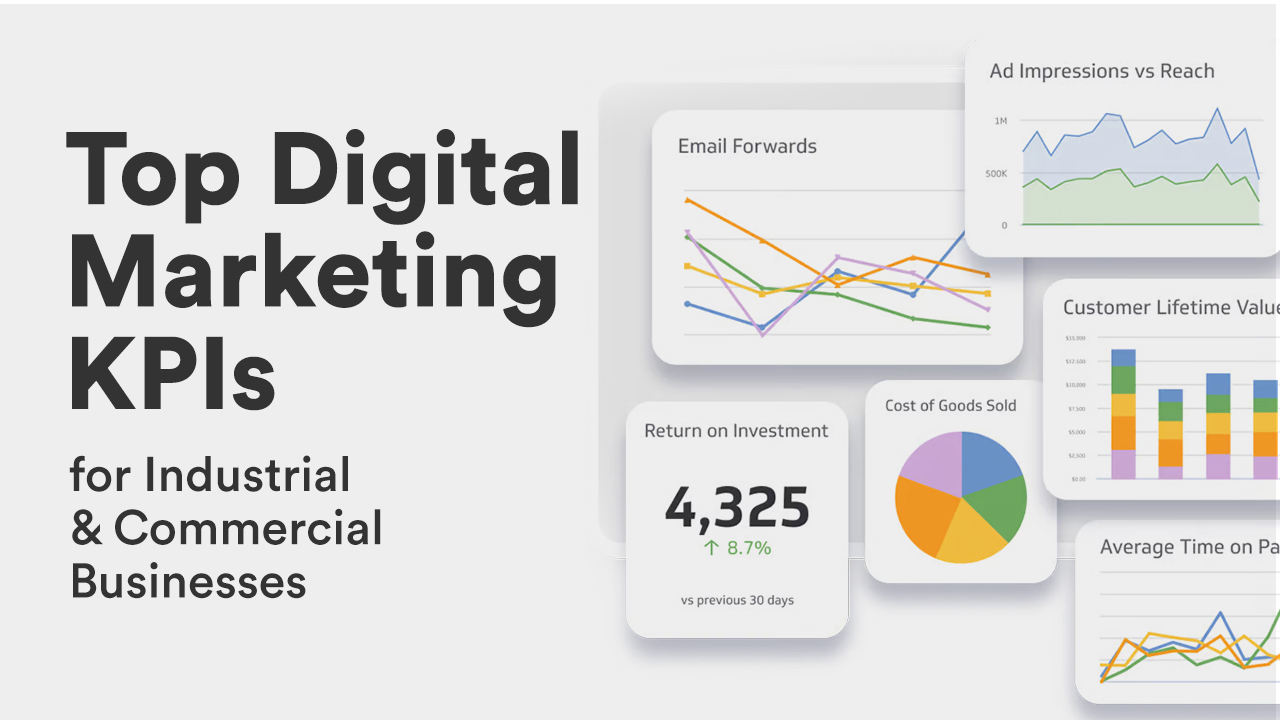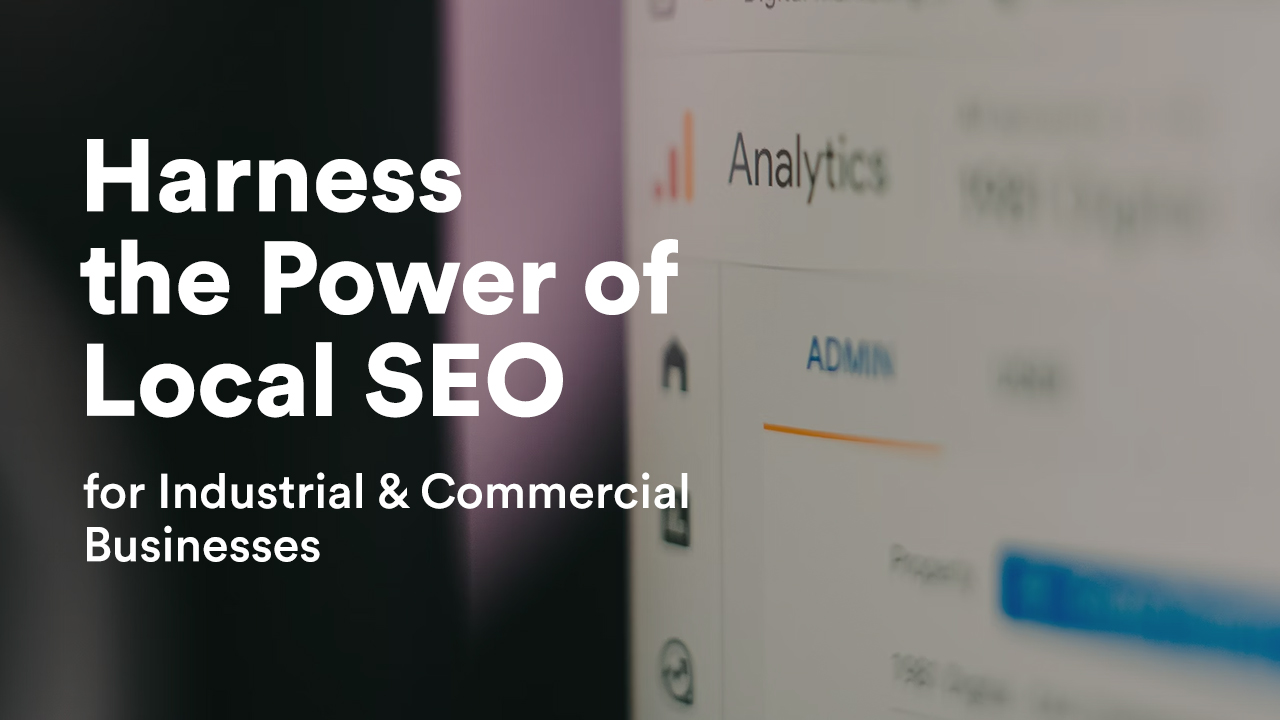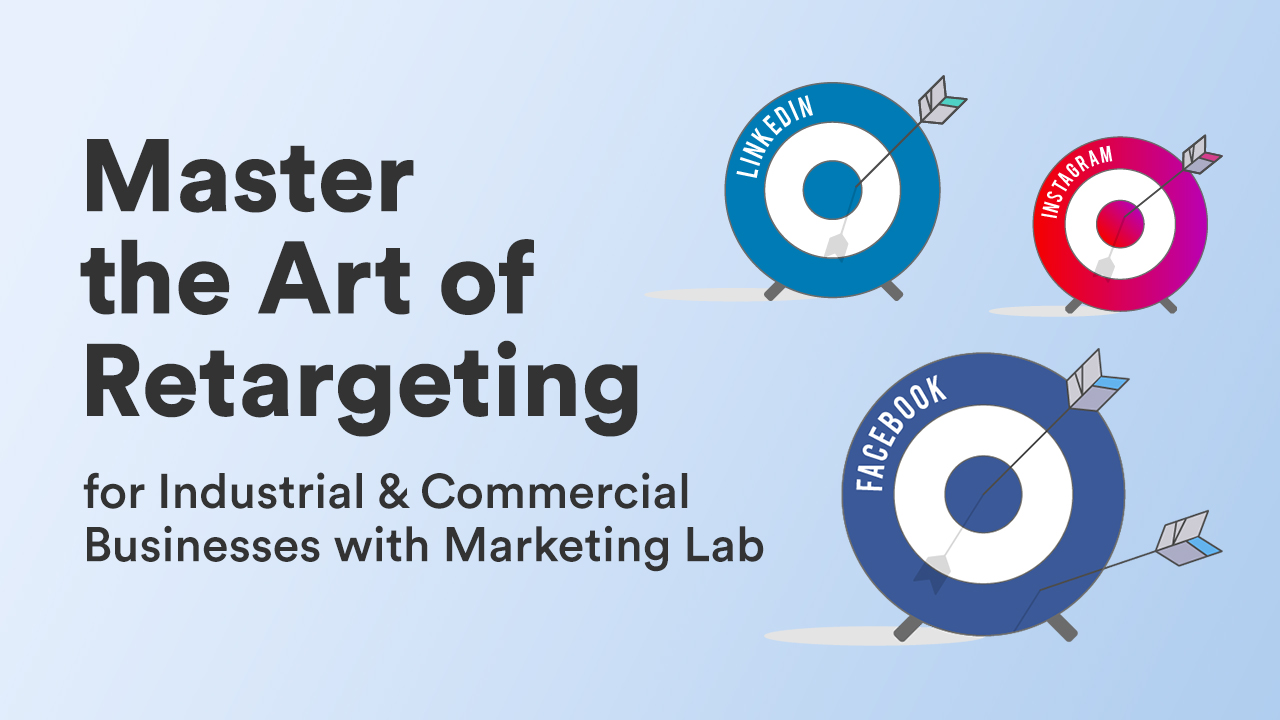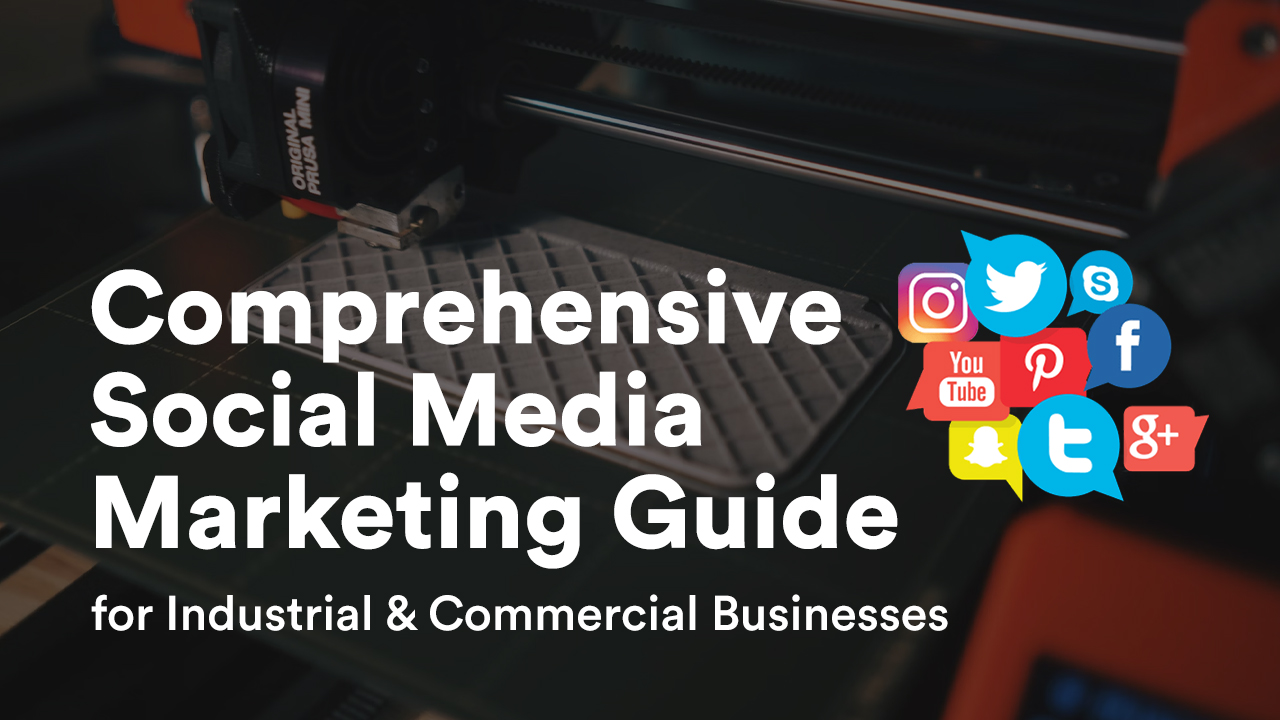Introduction:
As an industrial or commercial business in the digital age, measuring and tracking your digital marketing success is essential to ensure continuous growth and improvement. Key performance indicators (KPIs) are vital in monitoring your marketing efforts and providing actionable insights to guide your strategies. However, with so many metrics available, it can be challenging to identify which KPIs truly matter for your specific business.
In this blog post, we explore the top KPIs every industrial or commercial business should monitor and analyse for a comprehensive understanding of their digital marketing performance. These KPIs cover crucial aspects such as website traffic, conversion rates, customer engagement, and return on investment. By focusing on these vital metrics, your business can align strategies with desired goals, refine marketing efforts, and maximise growth potential in the increasingly competitive digital landscape.
Equip your industrial or commercial business with the data-driven insights needed for a successful and sustainable digital marketing strategy.
Website Traffic
- Visits and Unique Visitors: One of the fundamental KPIs for any digital marketing campaign is the total number of visits to your website and unique visitors. This metric helps you gauge the size of your audience and the success of your marketing initiatives in attracting potential customers. Monitor overall visit trends and analyse the variation between visits and unique visitors to assess how frequently users return to your site.
- Traffic Source: Analyse the different channels through which visitors reach your website, such as organic search, referrals, social media, or paid advertising. Understanding which traffic sources generate the most visitors and conversions can provide valuable insights into the effectiveness of your marketing strategies. By focusing on high-performing channels, you can optimise your marketing budget and maximise return on investment (ROI).
Conversion Rates
- Lead Conversion Rate: Turning website visitors into sales leads is crucial in the industrial or commercial sector. Measure the percentage of website visitors who complete a desired action, such as subscribing to a newsletter, filling out a contact form, or downloading resources like brochures or white papers. You can identify potential bottlenecks or opportunities to optimise your website for higher conversion rates by monitoring lead conversion rates.
- Sales Conversion Rate: Track the percentage of leads that become paying customers, as this KPI directly indicates your marketing success and revenue potential. A low sales conversion rate might signal a mismatch between your marketing messaging or target audience and the actual value proposition of your products or services.
Customer Engagement
- Bounce Rate: This KPI measures the percentage of visitors who leave your website without visiting other pages or completing meaningful actions. A high bounce rate could indicate user experience issues, such as slow-loading pages, poor navigation, or unengaging content. Regularly assess your bounce rate and address potential pain points to improve user experience and enhance engagement.
- Average Session Duration: Monitor the average time visitors spend interacting with your website to understand how engaging your content and website structure is. A longer session duration indicates visitors find your content valuable and more likely to convert into leads or customers. Implement strategies to maximise session duration, such as incorporating engaging content or improving site navigation.
- Pages per Session: This KPI measures the average number of pages a user visits during a single session on your website. A higher number of pages per session indicates higher user engagement and interest in your content. Aim to increase this metric by optimising your internal linking structure, improving page load times, and providing relevant, high-quality content.
Return on Investment (ROI)
- Cost Per Lead (CPL): Calculate the average cost of acquiring each lead with this essential KPI, allowing you to evaluate the efficiency of your marketing efforts. You can identify the most effective strategies by comparing the CPL across various marketing channels and allocate your budget accordingly. Monitor and adjust your campaigns to optimise CPL and drive higher marketing ROI.
- Customer Lifetime Value (CLV): This KPI estimates the total revenue a business can expect from a customer during their relationship. By comparing the CLV to your marketing expenses, you can determine the long-term ROI of your campaigns. Focus on strategies that maximise CLV, such as nurturing customer relationships, offering loyalty programs, or providing targeted communication that drives repeat business.
- Return on Ad Spend (ROAS): Calculate the revenue generated by your ad campaigns in relation to the cost of running these ads. This KPI is especially relevant for pay-per-click (PPC) campaigns, helping you assess whether your advertising budget is yielding desirable results. Use ROAS as a starting point for optimising your ad campaigns and identifying areas for improvement.
Achieve Digital Marketing Success with Marketing Lab
Measuring and monitoring the top KPIs for your industrial or commercial business is crucial to drive continuous improvement and achieve digital marketing success. Focusing on website traffic, conversion rates, customer engagement, and return on investment helps identify strengths and weaknesses in your strategy, allowing you to make data-driven decisions and optimise your marketing efforts.
Allow Marketing Lab to handle your digital marketing initiatives and lead your business towards success. Our team of experts can help you track and analyse the right KPIs, provide actionable insights, and implement effective strategies to improve your online presence and sustain business growth.
Don’t let the complexities of measuring and optimising your Melbourne digital marketing efforts hold your business back. Contact Marketing Lab today to discover how our tailored approach can enhance your digital marketing success and drive conversions.










